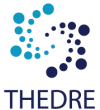THEDRE is a method to lead scientific researchs. It is based on 30 years of thesis monitoring experience in different disciplines (Biology, Economics, Political Science, Computer Science).
This professional experience has been formalized within the framework of a scientific research in computer science. The result of this work is on the one hand a modeling language to lead scientific researchs. On the other hand, the method proposes guides (15) to manage thesis, to correctly initiate a thesis work, to experiment, to analyze data, and to write an article.
References
- Sciences of Artificial (H.Simon 1956), to give a scientific framework to what is produced during a thesis (in particular the work in Human Centered Computing).
- Pragmatic constructivism (Avenier, Thomas 2007), to stipulate how scientific knowledge will be constructed and how it will be evaluated.
- The quality approach, in order to offer management tools for the thesis as a project.
- The user-centred design (UCD ISO), to integrate the human being in the construction of the research.
The language and guides were constructed and evaluated with doctoral students and thesis supervisors (40 in total).
Numerous training sessions are organized in laboratories, doctoral schools and at conferences. These trainings allow to disseminate the method, to make it evolve and to enrich the proposed guides.
Publications
Mandran, N. (2018a). Méthode traçable de conduite de la recherche en informatique centrée humain: Modèle théorique et guide pratique (Vol. 8). ISTE-Wiley.
Mandran, N. (2018b). Traceable human experiment design research: Theoretical model and practical guide (ISTE, Vol. 9). Wiley.
